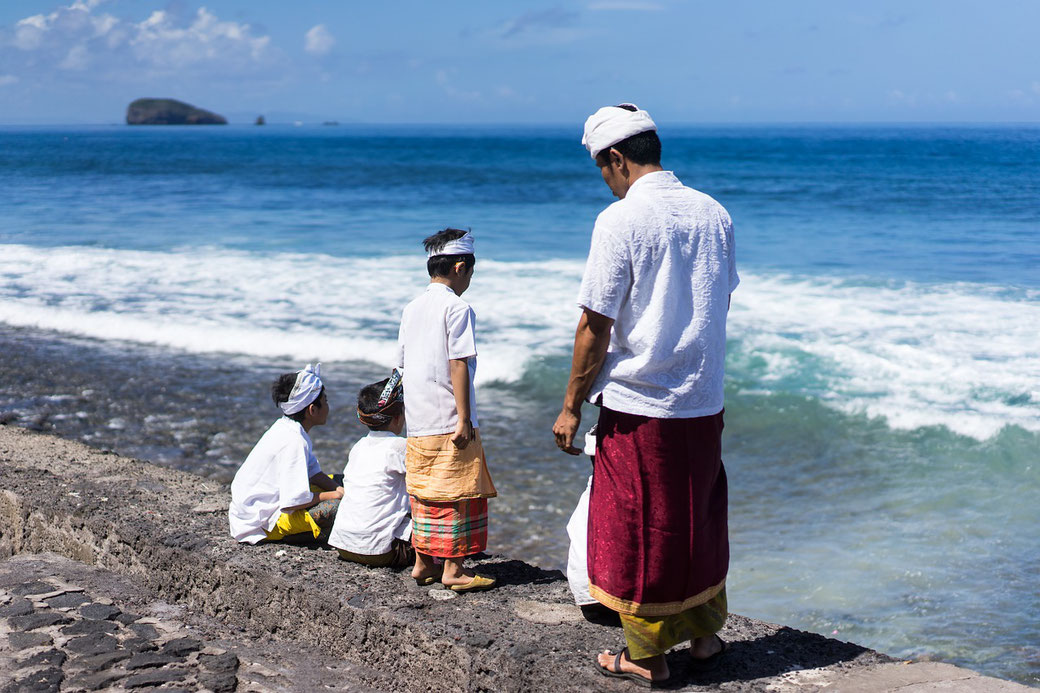Ceremonies
Balinese culture is rich with various religious ceremonies and rituals, as the majority of the population in Bali follows Hinduism. Some of the most important Balinese ceremonies include:
Galungan and Kuningan: Galungan is one of the most important and widely celebrated Balinese Hindu festivals. It marks the victory of dharma (good) over adharma (evil). The celebration lasts for ten days, and on the last day, called Kuningan, special offerings are made to honor ancestral spirits.
Nyepi: Nyepi, also known as the Balinese New Year or "Day of Silence," is a unique celebration where the entire island observes a day of silence, fasting, and meditation. No lights, entertainment, or loud noises are allowed during this day as it is believed to confuse and scare away malevolent spirits.
Saraswati: Saraswati is a celebration dedicated to the goddess of knowledge, arts, and wisdom, Saraswati. It is observed every 210 days according to the Balinese Pawukon calendar. On this day, Balinese Hindus show gratitude to the goddess by creating offerings and visiting temples.
Pagerwesi: Pagerwesi is a ceremony that falls ten days after Saraswati. It is a day to reinforce spiritual and mental protection against evil forces. The word "Pagerwesi" itself means "iron fence," symbolizing the strength to resist negative influences.
Odalan: Odalan refers to the temple anniversary celebrations in Bali. Each temple has its own special day to celebrate based on its founding date, according to the Balinese calendar. These celebrations include prayers, offerings, traditional dances, and various festivities.
Piodalan: Piodalan is a smaller-scale temple anniversary celebration observed at family or ancestral temples. Families come together to honor their ancestors and deities with offerings and prayers.
Ngaben: Ngaben is the Balinese cremation ceremony. It is a significant and elaborate ritual to send the soul of the deceased to the afterlife. It is believed that the cremation releases the soul from the physical body, allowing it to transcend to its next journey.
Melasti: Melasti is a purification ritual held a few days before Nyepi. Balinese Hindus go to the beach or sacred water sources to purify themselves and their ceremonial objects.
Ogho Ogho: The Ogho Ogho ceremony in Bali is anancient ritual held during the Balinese New Year, known as Nyepi. Locals construct large, grotesque effigies, representing evil spirits and negative energies. Participants parade through the streets, carrying these colorful statues, before being set ablaze to symbolize the purification of the island from malevolence, ushering in a fresh start for the new year.
Daily offerings or rituals: Balinese daily offerings are heartfelt rituals where individuals place flowers, incense, and food on small shrines in their home temples. These offerings are meant to honor deities, ancestors, and spirits, fostering spiritual connection, gratitude, and harmony in daily life.
These are just a few examples of the many important ceremonies in Balinese culture. The Balinese people deeply value their customs and traditions, and these ceremonies play a vital role in maintaining their spiritual beliefs and cultural identity.

